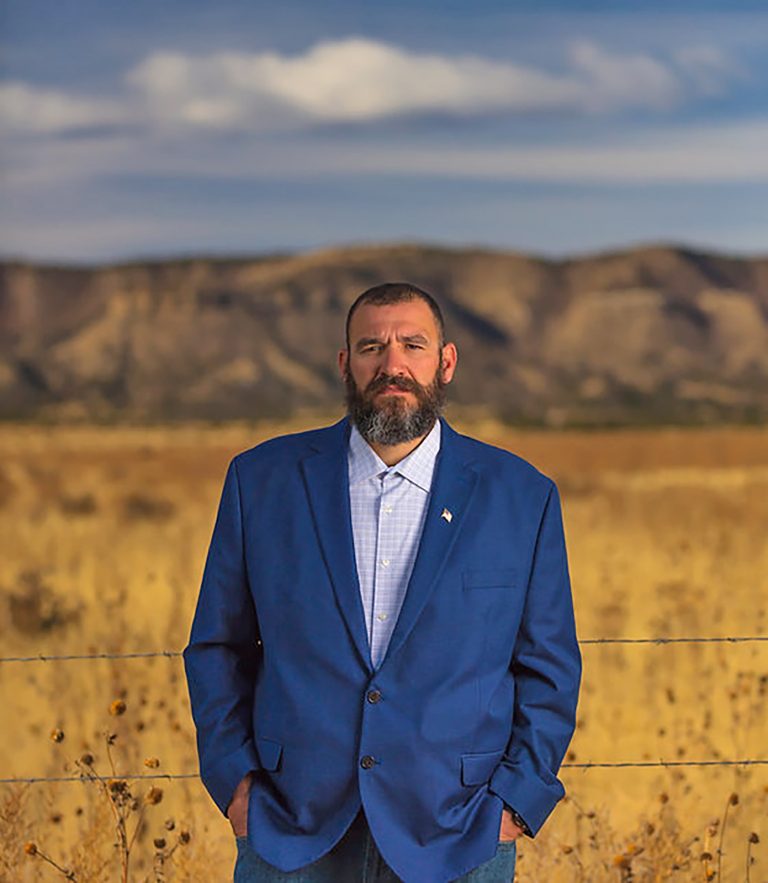T’Naus Nieto
The Chronicle-News
Despite a Democrat majority in the House and Senate, Republican state representative for Colorado’s House District 47, which includes counties such as Las Animas, Otero, Huerfano, and Bent, Ty Winter, was able to pass key pieces of legislation, which he claimed would benefit the communities and people he represents.
Winter spoke to The Chronicle-News in an interview to shed light on what he was able to accomplish during the 120-day legislative session, which began in January and ended late last month.
“I think it was a really successful session, with it being only my third year there,” he said. “I developed so many relationships, not only in the district but in Denver, at the capital, with the organizations that represent local counties like CCI and Colorado independent cattle growers.”
Winter entered the legislative year diligently, working to bridge the divide between state statutes and the needs of rural Colorado.
He said, “I worked hard for small business and big business. I worked hard to ensure we could continue to provide good healthcare in House District 47. I also worked hard for agriculture and energy and tried to keep jobs for the workers in our district. I think I passed a lot of legislation that’s truly going to make people’s lives better in House District 47.”
One bill, which Winter called one of his “biggest victories of the year,” reclassified nuclear energy as clean energy, HB25-1040, “Adding Nuclear Energy as a Clean Energy Resource.”
The bill would exclude nuclear energy generated by public utilities for property tax reasons.
“It allows communities to decide to put nuclear energy into severance taxes, just like we did with oil and gas,” Winter said. “And we’ve seen the state kill the oil and gas industry… We know that wind and solar aren’t going to be the only things that are going to power the state. So, it’s just one of those things where we have to have real discussions if we’re going to follow these arbitrary climate goals that the state has set forth. How do we really keep the power on? I truly believe that the only way to [achieve] this is through nuclear energy. So, it was exciting to get that bill passed.”
Another piece of legislation Winter seemed proud of was HB25-1222, “Preserving Access to Rural Independent Pharmacies.”
The bill would reportedly prohibit pharmacy benefit managers, or PBMs, from restricting the use of private couriers or delivery services for prescriptions and, most notably, would mandate that the PBMs reimburse rural pharmacies at or above the national average for drug acquisition costs, accounting for inflation.
According to Winter, he often traveled across his district, employing a grassroots approach to gain an understanding of what the people wanted. He shared an anecdote about meeting a pharmacist in the small town of Swink, Colorado, who expressed his concerns, inspiring him to take action.
He said, “I didn’t try to be a single-issue legislator. I traveled the district last year, and I heard a lot about prescription costs, so I ran the independent pharmacy bill to try to save our independent pharmacies.”
Winter didn’t stop at rural pharmacies. He was also a prime sponsor of HB25-1288, “Support for Federally Qualified Health Centers,” a bill that would support health clinics in dire financial stress, such as Salud Family Health in Trinidad, which, as previously reported, had been under severe financial strain following the COVID-19 pandemic.
The bill would help increase financial support for federally qualified health centers and allow the Department of Health Care Policy and Financing to accept private and public gifts for the Primary Care Fund.
“I talked to the people from Salud. They were looking for solutions,” Winter said. “We were able to get an amendment on the long bill to put more funding in the primary care fund that we stripped off by the JBC (joint budget committee) because the state budget was shot. We were $1.2 billion in debt, and they had to trim money out of the budget.”
AGRICULTURE:
Agriculture was another key issue Winter focused on. Legislative pieces included HB25-1203, SB25-176 and SB25-128.
HB25-1203 was the “Misbranding Cultivated Meat Products as Meat” bill, where he was, again, a prime sponsor. The bill would require companies to clearly label cell-cultivated meat products to prevent consumers from believing they were traditional meat and to ensure transparency for buyers.
“We truly believe that rural Colorado has the best protein sources out there,” Winter said, referring to the bill. “And we just want the free market to decide. Therefore, any cell-cultured meat will have to be labeled… I mean, I would want to know if my meat was grown in a test tube in a laboratory.”
Winter prime sponsored SB25-176, “Sunset Commodity Handler and Farm Products Act.” The bill would extend the regulation of commodity and farm product handlers through Sept. 1, 2032, and increase the annual purchase limit for small-volume dealers from $25,000 to $45,000.
Winter said, “When it comes to agricultural services and people being able to own private property. That was another huge issue that I heard tons about this last year.”
SB25-128 was the “Agricultural Worker Service Providers Access Private Property.” It would repeal provisions that allowed agricultural workers’ key service providers, such as healthcare professionals and legal advocates, to access private agricultural property during non-working hours.
For criminal justice, Winter was a prime sponsor of a bill that would fund rural district attorneys’ offices, enabling them to recruit and hire new deputy district attorneys. The bill was SB25-067, “Prosecution Fellowship Program Changes.”
The bill would help rural DA offices address staffing shortages and tailor recruitment efforts to their specific needs.
He also sponsored SB25-036, “State Patrol Bonding Exception,” which modifies bonding requirements for Colorado State Patrol officers by creating an exception for those already covered under the state’s self-insurance program.
Bill wasn’t the only thing Winter worked toward. He also advocated for state resolutions, such as the “Sand Creek Massacre Memorial,” HJR25-1024, which sought to install a memorial on the state capitol grounds for victims of the Sand Creek massacre from Nov. 29, 1864.
Other bills Winter was a prime sponsor for include HB25-1177, “Utility Economic Development Rate Tariff Adjustments,” HB25-1126, “PUC Membership Geographic Representation,” HB25-1283, the “Wild Horse Project Management and Immunocontraception,” SB25-049, “Continue Wildlife Habitat Stamp Program,” SB25-038, “Wildlife Damage Protection of Personal Information,” and HB25-1110, “Railroad Crossing Maintenance Costs.”




